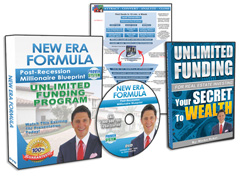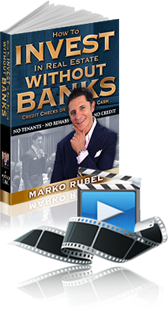
 Although most financial analysts, planners, and gurus continue to tout the best way to diversify your wealth portfolio to maximum advantage is to seed that portfolio with sundry real estate investments, it appears almost tragic that so many real estate investors either remain on the fence or on the sidelines, gun shy and fearful, singed from the great depression of real estate values during the financial crisis of the past decade, although its full recovery is now front and center. In fact, by the first quarter of 2016, asset value increases were reflecting a 53% total return for investors nationwide and expected to continue in positive fashion for the next several years.
Although most financial analysts, planners, and gurus continue to tout the best way to diversify your wealth portfolio to maximum advantage is to seed that portfolio with sundry real estate investments, it appears almost tragic that so many real estate investors either remain on the fence or on the sidelines, gun shy and fearful, singed from the great depression of real estate values during the financial crisis of the past decade, although its full recovery is now front and center. In fact, by the first quarter of 2016, asset value increases were reflecting a 53% total return for investors nationwide and expected to continue in positive fashion for the next several years.
Much of the trepidation comes from a misreading of where we are in the current real estate market cycle nationwide and if the cycle has now peaked and headed to a significant downturn. Talk of real estate cycles and bubbles, business cycles, and emerging markets are enough to raise your blood pressure and bring on a massive migraine. Although it can be said no one can predict with absolute precision the timing of a real estate cycle, historically, from data compiled since Alexander Hamilton was our first Secretary of the Treasury until now, real estate cycles average a duration of eighteen years and the next course correction will not likely appear before the year 2026.
Discussions of real estate cycles commonly refer to the four stages of recovery, expansion, hyper-supply, and recession, occurring over a course of eighteen years before repeating themselves in the next cycle. With national vacancy rates approximating 4% currently, most financial analysts believe we are in the midst of the expansion phase of the current real estate cycle and we should remain there through 2018.
Knowing you are well into the expansion phase, you need to decide to be either a conservative or aggressive portfolio builder. Generally, the more risk you choose to bear makes all the difference in the world. The main goal of a conservative portfolio is to protect its overall value, devoting a lesser portion to equities and more to fixed income securities and to real estate. Beyond stocks and bonds, the ideal alternative asset of investment is real estate. Well chosen, such investments provide positive cash flow and serve as a great inflation hedge with upside equity growth through appreciation and tax benefits to boot. Nowadays, creative financing options and crowdfunding provide more flexibility than ever before.
The old adage ” never put all your eggs in one basket” certainly applies to the diversification of a rock solid real estate portfolio. So plan to own longer term buy and hold real estate in multiple markets as a hedge against the next real estate bubble when it comes. Invest for likely appreciation and returns of capital.
Beyond location considerations and investing in multiple markets, plan to buy at different price points and plan to invest in different property types. Different property types appeal to different demographics and also provide measured protection when the expansion phase passes. Spread your investments across commercial and residential properties. Now is an ideal time to invest in multifamily properties according to many experts. Adding commercial properties to your portfolio allows for more cash flow and larger returns. Another great choice is investing in real estate investment trusts (REITS), entities that own or finance income producing real estate.
With a well-considered, thoughtful, well disciplined approach to structuring your diversified real estate portfolio, particularly with real estate across multiple markets and property types, both residential and commercial, success and wealth generation can be achieved and maintained. Timing is key as is sound planning. That way, whether you sell, refinance, or recapitalize, you are well positioned to ride out any down cycle, minimize losses, and benefit from the best of times as well
Request FREE Funding Kit and Discover How To Legally Bypass Banks And Gain Direct Access To "No-Credit-Required" Funding You Can Use To Achieve Your Financial Freedom... Start Now!












